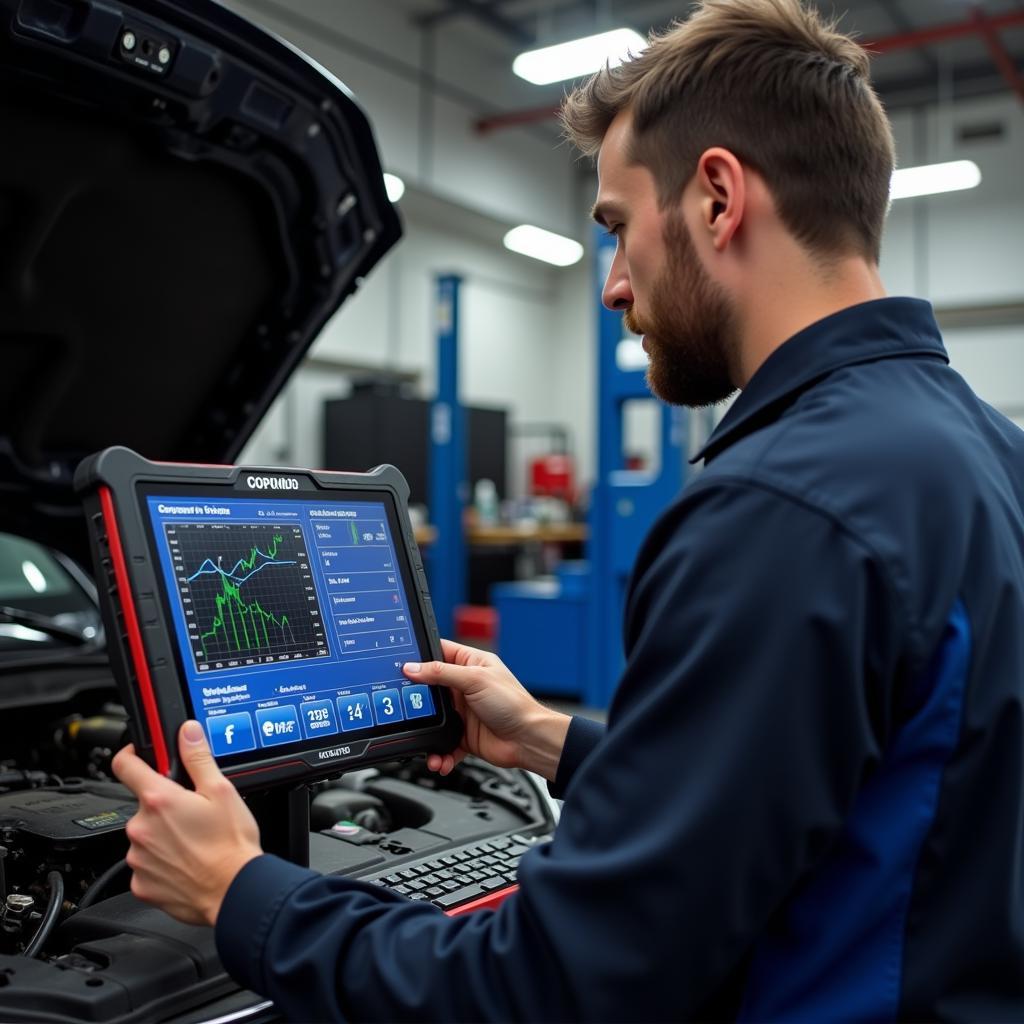A Diagnostic Checker For Car, also known as an OBD2 scanner, is an essential tool for any car owner or mechanic. It allows you to communicate with your car’s computer, read and clear diagnostic trouble codes (DTCs), and access valuable information about your vehicle’s performance. In this comprehensive guide, we will delve into the world of car diagnostic checkers, exploring their benefits, types, features, and how to choose the right one for your needs.
Understanding the Importance of Car Diagnostic Checkers
Modern vehicles are equipped with sophisticated onboard computer systems that monitor various aspects of engine and system performance. When a problem arises, the computer stores a DTC, which serves as a code for the specific issue. While some issues might trigger a warning light on your dashboard, others might go unnoticed, potentially leading to more significant problems down the line. This is where a car diagnostic checker proves invaluable.
By connecting to your car’s OBD2 port (usually located under the dashboard), a diagnostic checker allows you to:
- Retrieve and interpret DTCs: Easily identify the source of warning lights or performance issues.
- Clear DTCs: After resolving an issue, clear the codes to turn off warning lights.
- Access live data: Monitor real-time engine parameters like speed, RPM, temperature, and fuel pressure.
- Perform advanced diagnostics: Depending on the scanner model, you can access manufacturer-specific codes, perform bi-directional controls, and even program keys or injectors.
 Mechanic Analyzing Car Diagnostics
Mechanic Analyzing Car Diagnostics
Types of Car Diagnostic Checkers
Car diagnostic checkers are available in a range of complexities and price points, catering to different needs and budgets:
-
Basic Code Readers: These affordable and easy-to-use devices primarily read and clear basic DTCs. They are ideal for car owners who want to understand the source of check engine lights or perform simple diagnostics.
-
Advanced OBD2 Scanners: Offering a wider range of features, these scanners provide access to live data, manufacturer-specific codes, and some advanced diagnostic capabilities. They are suitable for both car enthusiasts and DIY mechanics.
-
Professional-Grade Scan Tools: Designed for professional mechanics and workshops, these comprehensive tools offer the most advanced functionalities, including bi-directional controls, programming capabilities, and access to extensive vehicle databases.
Choosing the Right Diagnostic Checker for Your Needs
With numerous options available, selecting the right car diagnostic checker can be daunting. Consider these factors:
- Your Budget: Establish a budget range based on your needs and the scanner’s features.
- Vehicle Compatibility: Ensure the scanner supports your car’s make, model, and year. Most scanners are compatible with standard OBD2 protocols used in vehicles manufactured after 1996.
- Features: Determine which features are essential for your intended use, such as live data streaming, manufacturer-specific code reading, or advanced functionalities.
- User Friendliness: Opt for a scanner with a clear display, intuitive interface, and easy-to-understand instructions.
- Brand Reputation: Choose reputable brands known for quality, accuracy, and customer support.
Conclusion
A diagnostic checker for car is an indispensable tool for anyone who owns or works on vehicles. From understanding check engine lights to performing advanced diagnostics, these devices empower you to take control of your car’s health and maintenance. By carefully considering your needs and exploring the various types and features available, you can choose the perfect diagnostic checker to keep your vehicle running smoothly for years to come.
FAQs
What is the OBD2 port and where can I find it?
The OBD2 port is a standardized 16-pin connector usually located under the dashboard on the driver’s side.
Can I use a diagnostic checker on any car?
Most cars manufactured after 1996 in the United States and 2001 in Europe use the OBD2 standard.
Will a diagnostic checker fix my car?
No, a diagnostic checker only identifies problems. It’s crucial to address the underlying issue causing the DTCs.
Do I need a professional mechanic to use a diagnostic checker?
Basic code readers are user-friendly, while more advanced scanners might require some technical knowledge.
Can I update my diagnostic checker?
Many manufacturers offer software updates to enhance functionality and vehicle compatibility.
Need help choosing the right diagnostic checker? Our team of experts at DiagFixPro is here to assist you 24/7. Contact us via WhatsApp: +1(641)206-8880 or Email: [email protected].

Leave a Reply